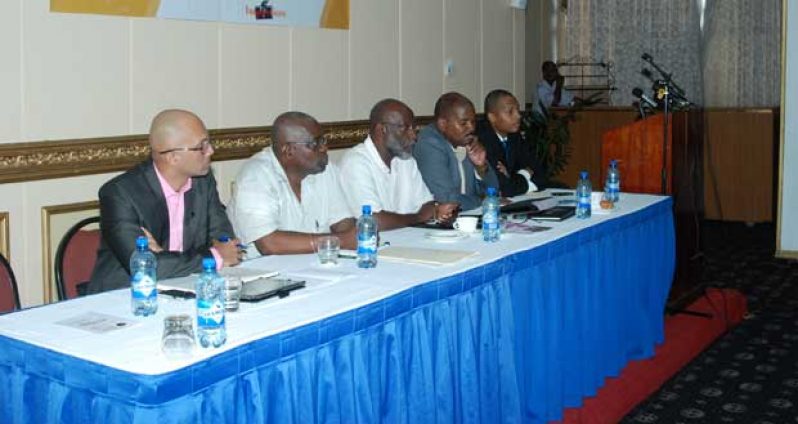COMMISSIONER of the Guyana Elections Commission (GECOM), Mr. Vincent Alexander, has expressed concerns about establishing an Executive Mayoralty, which would not only produce an autocratic approach to local government and municipal governance, but would “deflate the value of people’s involvement, in the democracy that we are trying to build.”
According to Alexander, in any local government system, there are strong mayors who are directly elected by the people with a responsibility to the citizens for the conduct of the affairs of an elected council.
Similarly, he said, there are weak mayors who operate as the principal councillor among a council of equals.
The GECOM Commissioner was speaking yesterday during a public forum hosted by the Georgetown Chamber of Commerce and Industry (GCCI) on Guyana’s Local Government system at the Pegasus Hotel, Kingston, Georgetown.
‘I am not an advocate for the Executive Mayor! In our case, I know that there are mayors who want to be, who try to be, and who pretend to be; and you could imagine if they were’- GECOM Commissioner, Mr. Vincent Alexander
Those at the head table included Senior Vice-President of the GCCI, Mr. Vishnu Doerga; Chief Elections Officer and Commissioner of National Registration of GECOM, Mr. Keith Lowenfield; GECOM Commissioner, Mr. Vincent Alexander; President of the GCCI, Mr. Lance Hinds, and Immediate Past-President of the GCCI and Founder of BLUE Caps, Mr. Clinton Urling.
Alexander, at the time was responding to concerns posed by Urling, who called the Commissioner out for being a part of the Task Force for the Local Government reform process, and bemoaned the electoral process for selection of the mayor, which could only be done by the members of the council who were appointed from various constituencies.
According to Urling, the system “only perpetuates and continues the dominant party system that exists in Guyana.”
 He said further that the important responsibility is shifted from the council and presents some discrepancy where an individual, who would have contested and won a seat in the council would be overwhelmed by the ‘majority rules’ politics of the council.
He said further that the important responsibility is shifted from the council and presents some discrepancy where an individual, who would have contested and won a seat in the council would be overwhelmed by the ‘majority rules’ politics of the council.
The founder of BLUE Caps, a new social change organisation, noted that the powers of the Local Government Commission, which is provided for within the constitution to appoint and quash such appointments of high ranking officials in the administration, ought to be vested in the mayor.
Urling said, “He or she [the mayor] should have the prerogative to hire whom he or she seems fit to execute their mandate, as opposed to a local government commission dictating who they should hire and when they should fire and all sorts of other responsibilities.” Urling further urged that, “The entire situation (in) which we have a Local Government Minister should be abolished.”
Mr. Alexander, in his response to Urling’s concerns noted, “I am not an advocate for the Executive Mayor in our case. I know that there are mayors who want to be, who try to be, and who pretend to be; and you could imagine if they were.”
He added that there is a reason why there should exist a Local Government Commission, as “a commission provides for a comprehensive approach for staffing, which allows for lateral and vertical movement of staff.”
“I don’t agree that the commission will necessarily interfere with a mayor and his staffing; there is a meritorious system for staffing, not a frenzied system. This system gives security of tenure, provides for a career path, (and) I think it is relatively progressive.”
Commissioner Alexander, in acknowledging the role to be played by the Ministry of Local Government & Regional Development, observed that the ministry’s power should reside within the ambit of establishing the standards of operation for the local government authorities, which ought to be upheld in order to ensure the effective delivering of services from the local authorities to their citizens.
(By Derwayne Wills)



.jpg)








